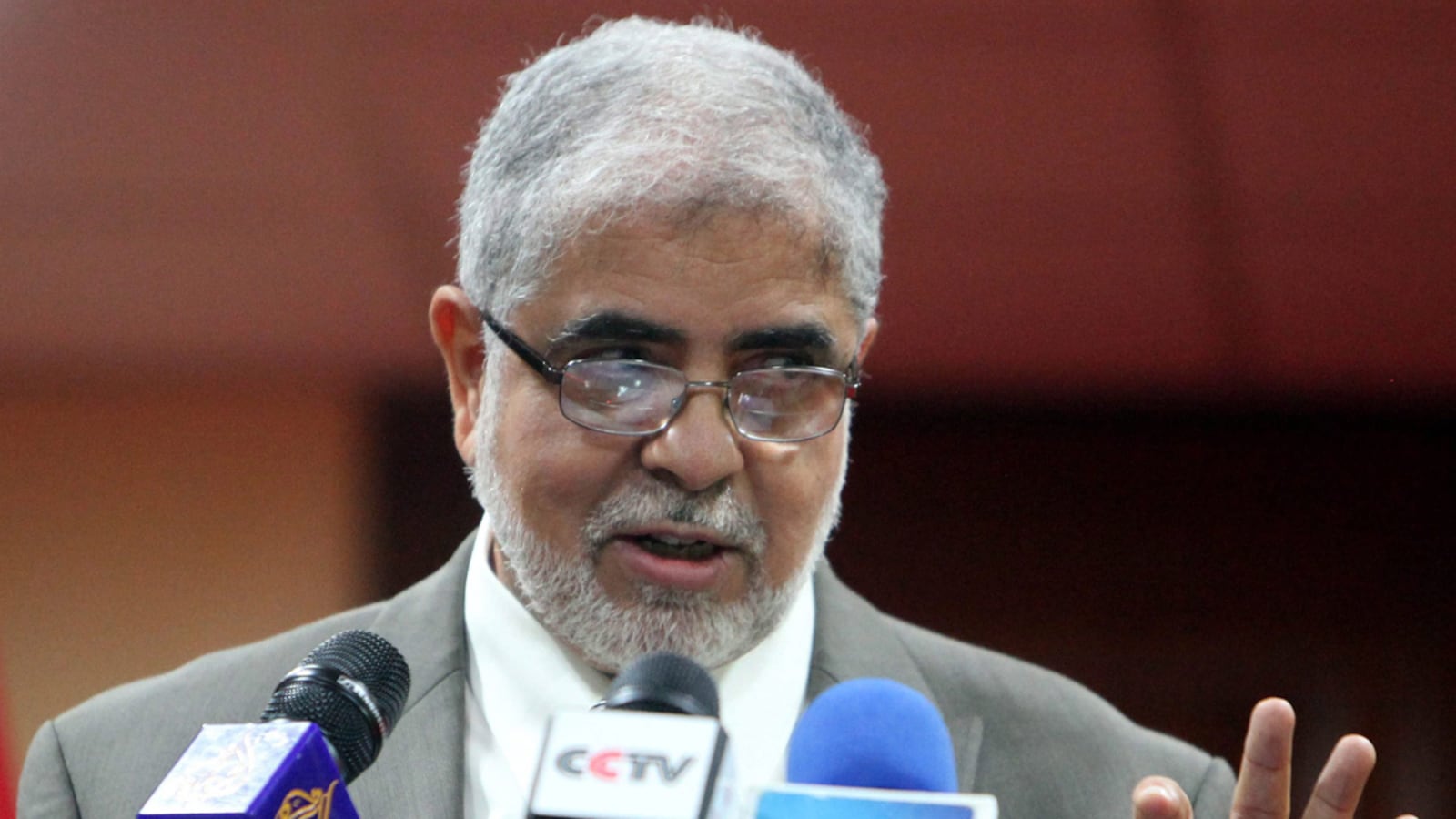Libya was thrown into further political disarray Sunday, when the country’s newly installed General National Congress sacked Prime Minister Mustafa Abushagur, who has struggled to gain parliamentary approval for a cabinet. His ouster—after less than a month in office—underscores the huge challenge of persuading the country’s political factions and fractious regions to work together.

In a last ditch effort, Abushugar, who was elected prime minister the night after Ambassador Christopher Stevens was killed in the assault on the U.S. consulate in Benghazi, warned of instability and urged the GNC to “assume its responsibilities at this historic time” by accepting a “crisis government.” But 125 of the 200-member legislature voted to remove him, setting the prospect for weeks of more behind-the-scenes horse-trading and political wrangling while the country is buffeted by rising lawlessness and threatened with religious radicalization.
A former academic engineer who trained and taught in the United States for 32 years, Abushugar became the country’s first elected prime minister post-Gaddafi in a close run-off vote in which he narrowly beat Mahmoud Jibril, who declined an offer of the foreign ministry. Jibril, whose centrist alliance won almost half of the 80 seats in the GNC reserved for political parties, lost out the top spot by failing to attract enough of the GNC members elected from individual lists as opposed to the party lists.
Favored by progressives and moderates, Jibril is loathed by some of the revolutionary militias, who see him as a tainted figure because of his past dealings as a planning minister with the Gaddafi regime. Whether, in the wake of Abushugar’s sacking, Jibril can forge an agreement with the country’s second biggest party grouping, the Justice and Construction Party, an offshoot of the Muslim Brotherhood, remains to be seen. Together they control a dominating vote in the legislature but they failed to reach agreement before, resulting in the election of Abushugar, a moderate Islamist who was seen as a compromise candidate.
Abushugar sought to fashion a broadly representative but also technocratic cabinet, but his choices for ministers angered the towns of Benghazi, Zawiya, and Misrata. Militiamen from those towns believe the major roles they played in the uprising against Gaddafi should mean they get a greater share of the political rewards—they see themselves as the owners of revolution—and they claimed they were underrepresented in a list of 29 ministers Abushugar presented to the GNC earlier this week. He withdrew that initial lineup for government after the GNC chamber was stormed on Thursday by protesters from Zawiya. But his list of 10 ministers for an emergency cabinet also failed to satisfy.
Uniting the country and transitioning to democracy was always going to be a Herculean task but the delay in forming a new government able to demonstrate leadership is going to make it harder to restore stability. Deep animosities from the uprising and Gaddafi’s brutal efforts to suppress it remain. And old regional, tribal, and ethnic rivalries have been aggravated, triggering clashes in the south and the western mountains in the past few months and prompting a federalist movement in the east. Prolonged political wrangling will frustrate ordinary Libyans, who hanker for more law and order and predictability as well as improvements in their everyday material lives.
Diplomats and analysts have complained in recent weeks of a “leadership deficit” in Libya that’s undermining the credibility of the political process, imperiling a successful transition to democracy. “We already have seen dithering in the immediate wake of the attack on the U.S. consulate,” says a European diplomat. “Then the top leaders appeared to be getting their act together with redoubled efforts to get militias to start coming under the control of the defense ministry. But with this setback and the political confusion it is going to be harder to follow through on that and to persuade or compel militias to disband. The lack of unity is really worrying.”
In the wake of the Sept. 11 assault on the U.S. consulate, there were clear signs of a popular backlash against militias, with tens of thousands demonstrating in Benghazi against Ansar al-Sharia, one of the militias being blamed for the attack, as well as other more Salafist-based armed groups.
Speaking on Libya’s al-Wataniya TV after he lost the no-confidence vote, Abushagur warned of the increasing risk of instability, if it takes too long to agree to a replacement. “There should be quickness in the election of the prime minister and formation of the government so the country does not slip into a vacuum,” he said.
An adviser to Jibril told The Daily Beast that there are talks going on now between moderates and the Islamist Justice and Construction Party about picking a successor to Abushugar and that some thought is being given to selecting a neutral technocrat. “Whether that will work, I don’t know. In a sense that was what Abushugar was and he didn’t have the political clout to make anything happen.”
Political confusion is unlikely to help the U.S. in trying to get to the bottom of what happened the night Ambassador Stevens was killed. And the lack of leadership in Tripoli will only cause more headaches.





